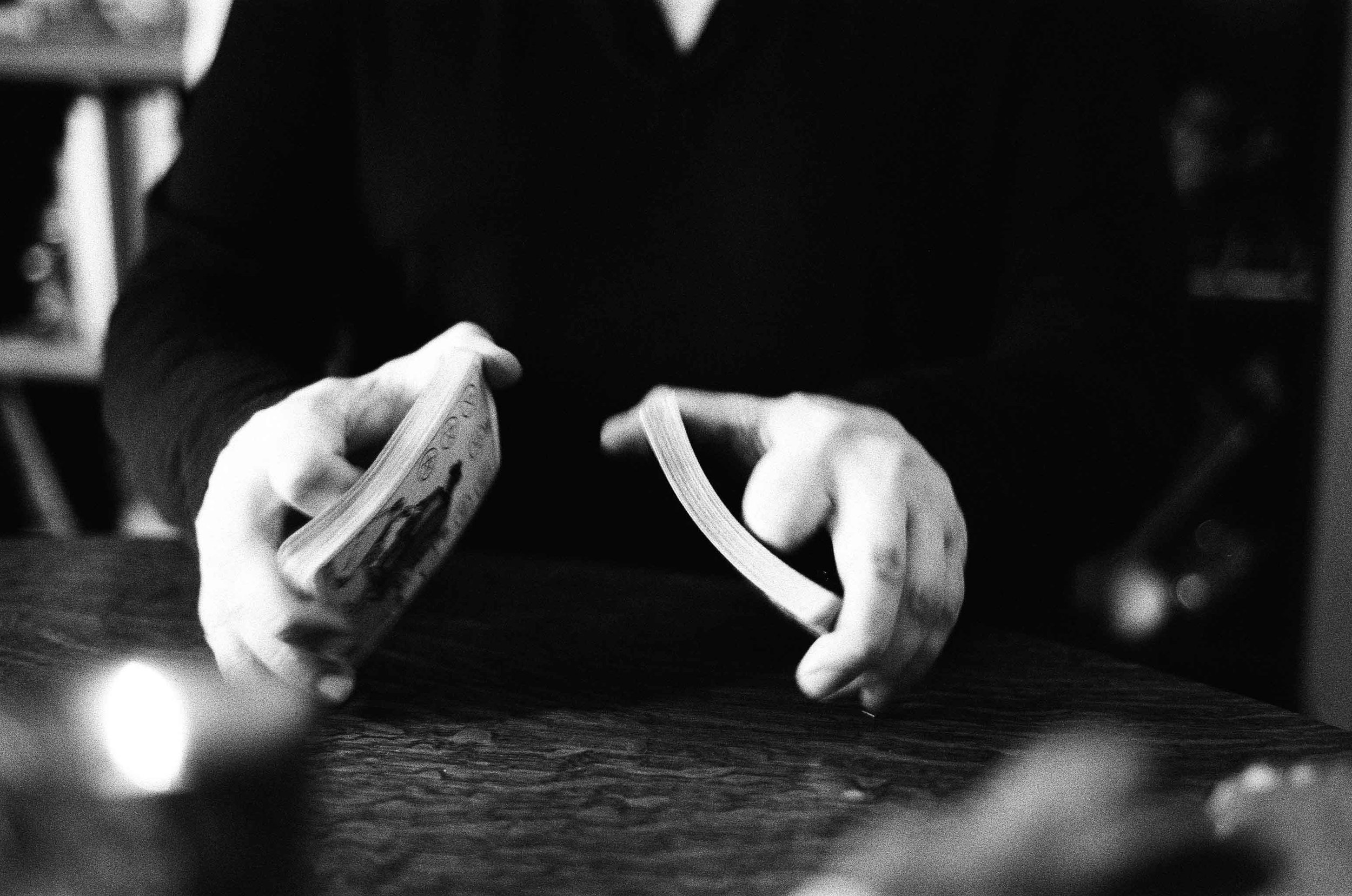GAMES, FORTUNE-TELLING AND THE THIN LINE OF FUN BETWEEN
last week, i attended the GAMA Expo at the perpetually cigarette smoke filled Peppermill Casino in Reno, Nevada. this week-long conference and trade show is put on every year by the Game Manufacturers Association, featuring informative seminars for those working in hobby game distribution (like myself) as well as the attendance of the elusive industry glitterati behind brands such “the army painter,” “modiphius” and “warhammer: 40k.” while i could write an entire blog entry about my experiences at the expo, i wanted instead to focus on the musings i had while walking around the trade show regarding the historical and contemporary connections between gaming and fortune-telling.
while there are always exceptions to broad generalizations made about any group of people, there is definitely a vibe of sensitivity in the divination community when it comes to how seriously “outsiders” view fortune-telling. parsing the obfuscated omens of fate is serious business, after all, and it is only natural to feel personally attacked when some normie laughs at us when we start talking about our fascination with tarot cards, crystals and owning an abundance of candles. this sensitivity to ridicule is also shared by gamers and when you take a step back and squint, the difference between gamers and fortune-tellers don’t seem so stark. so, it ain’t surprising that after reaching this epiphany, seeing that the similarities between games and divination becomes obvious.
WHAT IS A GAME, REALLY? OR FORTUNE-TELLING …
while walking the floor of the trade show it is easy to get overwhelmed by the sheer colorful variety of games on display. there were card games, miniatures games, games where you play jedi and games where you take prominent roles in the historical struggle for women’s rights. there was a game about growing vegetables in a 20th century war time victory garden across the way from a card game about beating up schoolgirls at a playground during recess. there were roleplaying games requiring fistloads of dice, strategy games that utilized a dizzying array of measuring rods and even an analog wrestling game that used randomly drawn cards to resolve the force of a strike. whatever the differences between the methods of conflict resolution, all of these games were models that were meant to emulate a set of narrative conceits. by providing a top down perspective on a scenario and a set of mechanics that governs the cause/effect of the “universe” that the game takes place in, players are able to leverage their experience and system mastery to bend the outcome of the game in their favor.
quintessentially, a game is an abstraction of life developed to encourage strategic thinking. tactics and fortune-telling are both disciplines that revolve around prediction of the future informed by deep understanding of the past and present. it is a chicken and the egg situation when it comes to figuring out which has been with us for longer but it ain’t no coincidence that many divination systems revolve around the ritualized use of modified game pieces, e.g cards, runes, dominoes, dice. games mimic fate with math and random number generators. it isn’t a big leap to assume that game logic can extrapolate into real world foresight through the use of its props.
the big difference between the two, games and fortune-telling, is that the former is designed to be fun and the latter aims to be perceived as dire.
WHY SO SERIOUS?
“but drew,” one might say, “my life isn’t a game, it’s serious business!”
... and yeah, life is serious because death, pain and/or penury are sometimes outcomes of particularly bad strategic plays. that being said, taking your life too seriously can be jus as blinding as making light of all of the world’s perils. while some say that all life is a stage, it may be more accurate to say that life is a particularly dense game with an arcane, ever shifting ruleset. like a game, fortune-telling abstracts one’s personal drama and history. it projects outcomes to problems based on a collective strategy and just as in a well-crafted game, system mastery allows those utilizing fortune-telling to achieve a semblance of victory in their day to day lives.
if we view fortune-telling as a more light-hearted pursuit and less as a series of ominous portents, the wisdom we can gain from its application can work to make the choices we make more informed. more importantly, most games are made more enjoyable when there are more people sitting around the table.
fortune telling used this way, as a communal activity, is conducive to strengthening the empathetic bonds between those involved in the practice. self-actualization doesn’t need to be an experience of solitary revelation and it is often more poignant when the feeling of enlightenment can be shared with friends and family.
IT’S ALL FUN AND GAMES …
there are many games out there that utilize the classic trappings and tools of fortune tellers. from classic trick taking games that utilize tarot cards, to ouija boards available by milton bradley all the way to the game of hope that was included with the original printing of the petite lenormand, there are hundreds of games that you can play at your very own “divination” parties. a great feature of these activities is that aspects of its divinatory purposes shine through here and there, allowing one to slip in a bit of esoteric knowledge innocently.
a big part of games and fortune telling in general is that it encourages you to listen to your friends. by sharing your divination practice with a wider social circle, you open yourself and others to a variety of perspectives that allows us to see the commonalities of our lived experiences. you realize the truth of the old adage “human beings are like snowflakes. a million different versions of the same damn thing.”
this understanding makes you a better fortune teller, but more importantly, it will make you a better friend.



